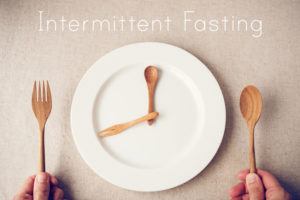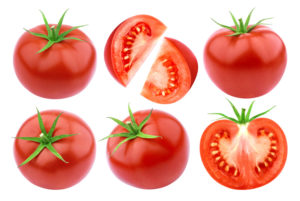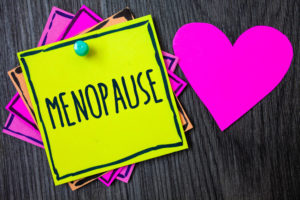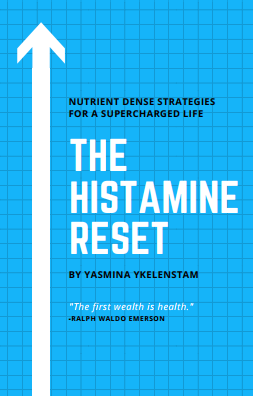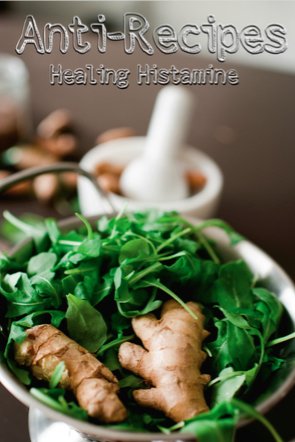
My interview with Harvard trained psychiatrist Dr. Georgia Ede covers a subject dear to my heart: the role of diet and histamine in depression, anxiety and much more. Having been misdiagnosed for decades with anxiety, depression, bipolar, cyclothemia, borderline personality, schizophrenic episodes, amongst others, I have experienced first hand how diet can cause or alleviate their symptoms.
Many, if not all, the women with mast cell activation/histamine intolerance I interact with share they have been told their symptoms are psychosomatic. Though I absolutely acknowledge there is a mind body connection and that retraining the brain will help us heal, being labelled a hypochondriac is incredibly counter productive. In my own case it caused me to dig deep into my illness, triggering ever increasing reactions and depression as I struggled to externalise the symptoms I felt so that someone, anyone, would believe I was actually sick. This led to increasing anxiety and depression symptoms as I grew more and more frustrated in the effort to be taken seriously.
You’ll find recipes full of foods with antihistamine and anti-inflammatory properties my books Anti-Recipes and The Anti-Cookbook
CLICK HERE TO CREATE YOUR OWN PERSONALISED HEALING HISTAMINE PLAN.
In our interview we discuss:
The role of diet in psychiatric disorders
How histamine causes symptoms of or mimics anxiety
Histamine as a neurotransmitter
The inflammation-depression link
Psychiatric medications contraindicated in histamine disorders
Psychiatric medications that may help alleviate histamine symptoms
Steps to take if you believe histamine is the root/contributing cause of your psychiatric symptoms
Dr. Ede was kind enough to share that that Ann Childers, a child and adult psychiatrist practicing in Oregon. She also belongs to the Physicians and Ancestral Health group and has a website about food and mood.
You can read more about the role of mast cells and histamine in depression and anxiety here.
You can listen to the interview or read the the transcript below.
Yasmina:
Joining me here today is Dr. Georgia Ede. She’s a Harvard trained psychiatrist who’s been working in the field of college mental health for the past 10 years, first at Harvard University Health Service, and now at Smith College in Western Massachusetts. In 2012, she founded diagnosisdiet.com, which is dedicated to exploring the scientific connection between food and all aspects of mental and physical health. Dr. Ede has a personal interest in histamine intolerance. You’ll find a comprehensive article about it on her website.
She’s a founding member of Physician’s and Ancestral Health, a group of doctors that promotes the application of evolutiotary dietary principles to the treatment of human health conditiosn. At their national meeting in January, she gave a presentation entitled, Histamine Intolerance: Why Freshness Matters, the video of which will soon be posted on her website.
So, Dr. Ede, thanks very much for joining us here today. It’s a real pleasure to have you.
Dr. Georgia Ede:
Thank you so much for the invitation.
Yasmina:
I’d love to hear a little bit about your work as a psychiatrist generally.
Dr. Georgia Ede:
When I first finished my residency in the late ’90s, I worked in private practice as well as in clinic settings working with people of all different ages, seniors all the way down to 16, 17 years old. My practice was very varied. I mostly prescribed medications and conducted psychotherapy sessions. But I didn’t have any interest at all in, or very little in nutrition and mental health. So, the first five years or so of my practice, was very conventional practice. But then my focus changed because I developed, in my early 40s, a variety of symptoms that were very troubling to me, and that doctors couldn’t help me with. Using a series of trial-and-error experiments I figured out that by changing my diet I was able to remove all of these symptoms.
For example, I had symptoms of fibromyalgia and chronic fatigue and migraines and all kinds of other annoying things were happening for me. By changing my diet they all went away. So I became fascinated by nutrition and its impact on physical and mental health. In particular, my mood improved, and my concentration improved, and my energy. I was really surprised by that. So I changed my focus of my practice and I started doing nutrition consults both in private practice as well as at the Harvard Student Health Service, where I started working a number of years ago.
So I would offer a combination of medication, services, as well as nutrition consultation, because I began studying, very intensely, the connection between food and mental and physical health. That’s what I’ve been doing now for many years. Now I’m at Smith College and I offer nutrition consults there as well as traditional medication services, at Smith.
Yasmina:
That’s wonderful. That’s really great to hear. It’s been a personal quest of mine over the last few years, after some really negative experiences trying to go through psychiatry and psychotherapy myself, I eventually found the right way of doing it. I found a practitioner that I could work with, but I wish that I had met you. It would have saved me decades, literally decades, of my life.
I would love to know a little but about the diet that you employed with yourself and what kind of dietary recommendation … Not necissarily dietary recommendations, but what do you see in the diet of people who you consult with that to you are warning signals or something that would contribute to their mood, for example?
Dr. Georgia Ede:
It’s a big question. Let’s say that most people that I see who have mood problems, unfortunately, do not want to change their diet. Ill have, for example, students come into my office with a 32 ounce, florescent pink soft drinks or things like this. And they’ll be drinking that while they’re talking to me and complaining that they can’t concentrate or that they can’t sleep, or that their mood is imbalanced. It’s very difficult, especially with college students, to motivate them to change their diet because they’re young and they feel invincible. And they haven’t yet come down with a lot of health problems that can occur when diet is out of balance.
Primarily, my main message is, to eat real food, to eat fresh food, to eat foods that are recognizable as food. That alone takes care of the lion’s share of what people are struggling with, but it’s so different from how most people eat, as you know. So that’s part one.
Part two of the question that you were asking me is what do I eat. I don’t know if I’d necessarily go by me because I have a lot of food sensitivities. Histamine intolerance is just one part of what I discovered, or was true for me. My diet is very restricted due to my unique food sensitivities. I wouldn’t necessarily recommend the diet that I’m eating for everybody. It’s much stricter than it probably needs to be for most people. I eat for what works for my body, and everybody is so different, as you know. What I eat is mostly, I’d say, 80 – 90% fresh meat and chicken and fish, animals essentially. And then I supplement that with certain vegetables and low-carbohydrate fruits that I can tolerate, which aren’t very many, but I do have trouble with certain vegetables. Which was a surprise for me to discover. So, in any case, my diet is a mostly meat diet, and then supplemented with certain fruits and vegetables.
(Yasmina: my diet is very different: 70-80% vegetables and fruit. I was down to five “safe” foods when I realised things needed to change and now eat mostly what I want histamine-wise).
Yasmina:
Are there any interesting studies that you can share on the topic of how food affects mood?
Dr. Georgia Ede:
Yes. When I looked into this, because I noticed what a big difference my diet had made in my own mood and concentration energy … I think what I was surprised to find, there’s actually not that much good scientific information about food and mental health. It’s really a field that’s in its infancy. People are just staring to think about it. The exception being ADHD, which has been studied for decades.
People have suspected that … Parents have suspected that what they fed their children was making a difference in their behavior. And they, in my opinion, were absolutely right. But then when the researchers went to look for a connection, for example, between sugar and attention, they didn’t find the connection they thought they might find. In my opinion, this was because they didn’t do the studies properly. They only removed sugar. They didn’t remove all the things that turn instantly into sugar, like white flour.
Those studies were very flawed, but there were some fascinating studies about ADHD and food in children, almost all of them done in Europe 20, 30 years ago. Numerous studies where they would simplify a child’s diet, a child who had ADHD, and in some cases, their behavior was so dis dis-regulated that they were even hospitalized for their hyperactivity. They found that if they simplify the child’s diet, even for a couple of weeks, down to eight or nine simple foods, that, in the majority of cases, children with ADHD no longer met criteria for ADHD or their symptoms were markedly improved. That’s pretty amazing. It’s hard to say exactly what changes were the ones that were responsible for the improvement. But clearly, there’s a strong connection between behavior and attention and food if all you have to do is change the diet for a couple of weeks and you see such remarkable improvement.
Yasmina:
That is pretty amazing. I’ve actually just remembered that there is a study that I blogged somewhere, also conducted in Europe, that found a correlation between children who had low levels of the HNMT histamine-degrading enzyme. It found that children with ADHD that were exposed to, I think it was food coloring, who did not lack the HNMT enzyme, reacted less strongly than the ones who were lacking in that enzyme. Food dye, of course, is a mast cell trigger.
Read my post with the study here.
I don’t know how many of my readers are familiar with them, at the moment. Mast cells are a part of the white blood cell system. They house histamine prostaglandin, interleukins, and other inflammatory mediators, keeping them safe when not needed. Then the mast cells break open in a process called degranulation, releasing this inflammation into the body to deal with things like digestion, healing, and various other things.
We know that stress and foods can both trigger mast cells into releasing histamine and other inflammation into the blood stream. In addition, histamine is found in the brain as a neurotransmitter and also in food. You’ve written about histamine’s effects on body and mood. It would be great if you could share your findings.
Dr. Georgia Ede:
Yes. One of the interesting things to me, as somebody who has histamine intolerance myself, I notice that I don’t sleep as well. It’s harder for me to concentrate. I feel more anxious, and sometimes feel very tired if I eat foods that are high in histamine and other biogenic amines. If we eat excess hisamine, if we eat a food that’s high in histamine, that histamine can, if we don’t have enough of the DAO enzyme that’s supposed to be the first line of defense in our gut, if we can’t break down that histamine, it does get into the blood stream. It’s not thought to cross the blood-brain barrier, but it’s so complicated. So, why would histamine have mood effects?
There are two reasons why, as far as I can tell. One is that a lot of the physical symptoms of anxiety, you wouldn’t need to have any changes going on in brain chemistry, to have, for example a panic attack. A panic attack can occur completely in the body, and have nothing to do with the brain, because of the hormone adrenaline. That’s our fight or flight hormone, or panic hormone. That hormone is released when histamine is in excess. So, histamine can trigger adrenaline surges and adrenaline is the hormone that is responsible for panic symptoms. So that’s very interesting in and of itself.
Histamine can trigger the release of all kinds of other things. As you remarked, this is really important, when mast cells get triggered, they can release all kinds of other inflammatory cytokins and other kinds of little chemicals that can stir the pot. One of them, this doesn’t come from mast cells but, estrogen is also trigger by histamine. So if you have too much histamine in your system, you will also, especially women, get a surge in estrogen. And estrogen does cross the blood-brain barrier. There are histamine receptors, and there are histamine-generating cells in the brain.
So, if you have a surge in estrogen, the estrogen can cross into the brain and that can stimulate histamine release in the brain. And histamine is primarily … It has a variety of different functions but, two of the things that it’s very important in in the brain are brain arousal. It’s an exitatory neurotransmitter. It’s also key to memory and learning. A lot of people with histamine intolerance feel that they have brain fog, for example. And when they clean up their diet they feel much clearer. It’s very unclear what’s going on, but there are real biological connections that could explain why people feel the way they do.
Yasmina:
That’s wonderful. I’m so glad you made the estrogen connection. It’s really a huge issue for many of us, and we never really look at it. I just want to add, absolutely, it’s really interesting that there are new studies coming out showing … There was a study in Finland where schizophrenics who were resistant to treatment with anti-psychotics experienced a remission in symptoms in being treated with H2-receptor antagonist, antihistamines working on the H2 receptor. I don’t know if you’ve seen that.
Also, I came across some really interesting studies on how they think that it’s possible to treat drug resistant depression with anti-inflammatories or use them as an adjunct therapy to antidepressants. That’s really exciting news coming out in the last couple of years.
Are you the only practitioner right now that you know of who is dealing with this? I know there is Judy Safir in Boston, who I’ve spoken with, who is aware of the histamine connection. But I know there’s a lot of people out there who need help dealing with, not only the effects of not being able to eat many foods and dealing with the symptoms, but a lot of us found that our initial symptoms were triggered by some sort of emotional upheaval or trauma – mentally, psychologically. We could really use some help. I’ve been working with somebody for a number of years and it’s made a huge difference in my life.
Dr. Georgia Ede:
Yes. I know Judy Tsafrir. She’s fantastic. In fact, she’s the one, when I was at Harvard in eastern Massachusetts and living there, she was the one who wrote into my site and told me that I might have histamine intolerance. I was describing some of my symptoms as I was embarking on a ketogenic diet and I was actually feeling worse on the ketogenic diet than I had expected to. And it was because I had changed a lot of the types of food I was eating, especially when I was travelling. I was eating a lot more dried meats, and things like that because I couldn’t cook when I was on the road. So, she wrote in and said, “You probably have histamine intolerance.” That’s what got the whole thing going for me.
Yasmina:
We know that a number of medication posses anti-histamine activity while others are contraindicated. Do you have some examples you can share and are there any, in particular, that could kill two birds with one stone, so to speak … Antidepressants or anti-anxiety meds that also work on histamine receptors?
Dr. Georgia Ede:
Sure. There are some medicines that interfere with the enzyme that breaks down histamine, the DAO enzyme. Some of them are very commonly used, like the NSAIDs. We’ll call the NSAIDs, which are medicines like Advil, and Aleve. Those medicines can block the DAO enzyme and therefore can exaggerate, sort of exacerbate histamine symptoms. That’s one of the difficult things, as I’m sure you know, when you’re trying to diagnose somebody with histamine intolerance. One week they can do fine with a particular food, and the next week they don’t and they become really confused and so does their doctor about what’s going on. But it depends on what else is … How much of that food they ate … What other foods they ate that day … What medications they may have taken. Maybe they took Advil one week and not the next week. So, it becomes a difficult moving target.
There are medicines which interfere with DAO. But then, as a psychiatrist, I think a lot about medications which block histamine receptors. Even though we don’t think of these medicines as anti-histamines … Anti-histamines we think of as Benadryl, and as Zertec and things like that. But, a lot of psychiatric medications do block the histamine receptor, at least partially. They include familiar antidepressents like Paxil or Paroxetine, and Remeron or Mirtazipine, and some anti-psychotics and mood stabilizers like Seroquel, which is also called quetiapine, Zyprexa, which is olanzapine, and Elavil, which is amitriptyline, an old-fashioned antidepressant.
These medicines, their primary purpose is not to block histamine. In fact, histamine blockade is thought of as a nuisance by psychiatrists because if your medicine is blocking histamine it tends to make people very tired. But in any case, it can be useful if you’re having trouble sleeping. So, if you take a medicine that has one effect that you’re looking for, like anti-depression or anti-anxiety, but then it also blocks histamine, it can be very helpful for sleep.
So medications in psychiatry are very complicated and they do a lot of different things. But for people who have histamine intolerance, taking a medicine that also blocks histamine can kind of be, as you said, killing two birds with one stone.
Yasmina:
Indeed. That’s wonderful. I wanted to ask you, very quickly, if you could share with us what you think a person should do if they suspect that they have histamine-mediated depression symptoms or anxiety symptoms. What would your plan of attack be? Because I know a lot of people are lost out there.
Dr. Georgia Ede:
Yes. It’s very hard to diagnose. There aren’t any very good tests. The best test, if you can find an allergist who will do this with you, is the histamine skin prick test. That’s the most sensitive test you can get. But, even then, it’s not as accurate as … I think the gold standard, in my opinion, is a low histamine diet, which is where you come in.
A low histamine diet is really the way to find out whether or not you feel better when you lower your histamine load. You don’t have to do it for very long, as you know. Sometimes even just a couple of weeks will give you a lot of really good information about whether that’s part of what’s going on for you. I think eating whole foods, eating fresh foods, and paying attention … Keeping a food and symptom diary was absolutely key for me in terms of figuring out which foods bothered me and which ones didn’t. I think that’s absolutely step one.
Then, if you notice a big change, it’ll give you a lot more control over how you feel from day to day. Even though I have histamine intolerance, I sometimes will eat something on purpose that I know is going to bother me. But at least I know that that’s going to happen. If I know that I need to feel absolutely on top of my game, then I eat a very, very clean diet. But nobody’s perfect. And it gives you information you can use to help you control how you feel.
Yasmina:
Absolutely. I even used to do things like eat higher histamine foods when I needed to be awake for long periods of time.
Dr. Georgia Ede:
That’s great. Great. That’s a perfect example.
Yasmina:
Interestingly, I think one of the worst things I’ve ever done for myself was, I was on antidepressants that I had been described, incidentally I’ve taken all of the psych meds that you just mentioned, I was given Modafinil, Provigil, at one point, which is what airline pilots and fighter pilots take to stay awake for long periods of time. In recent years, in addition to its other waves of activity, they found that it works by boosting brain levels of histamine. So, wow.
Dr. Georgia Ede:
That’s interesting. I did not know that. Yeah, Provigil is prescribed for alertness. That’s really interesting.
Yasmina:
Yes. I was highly alert and much more than that for quite some time.
Thank you so much for joining me here today. In closing I wanted to say that Carmine Pariante, I don’t know if I’ve pronounced that correctly, a psychiatrist and King’s College in London, was quoted in The Daily Mail of London recently as saying, “There may be a blood test within five to ten years that can measure inflammation in people with depression so that they can be treated accordingly.” Wouldn’t that be wonderful?
Dr. Georgia Ede:
That would be wonderful. The connection between inflammation and depression is very strong. In fact, also between inflammation and schizophrenia, and bipolar disorder. It’s hard to know which direction that goes in because they’re associations. But eating a diet that’s anti-inflammatory … Which means, eating whole foods, and especially avoiding sugar, which is the most inflammatory substance you can put in your body, really makes a huge difference. Most chronic conditions are associated with inflammation you can’t see … The micro-inflammation … The cytokines … The high cytokine levels. It’d be great if we were able to target that more specifically with tests.
Yasmina:
Absolutely. That’s what I tell people. The low-histamine diet is great, but generally, looking beyond might be even more beneficial. I tell people, there’s no point in eating a low-histamine diet that’s still full of garbage. It’s easy to do.
Dr. Georgia Ede:
Exactly. I think they’re both very, very important. They reinforce each other.
Yasmina:
Exactly. Toss in all the anti-inflammatory foods, all the whole foods, and, as I tell people, if it’s on a list and it works for you, or it doesn’t work for you, just go with what works for you.
Dr. Georgia Ede:
Exactly. We’re each very different.
Yasmina:
Absolutely. Well, thank you so much for joining me here today Dr. Georgia Ede. I highly recommend that every one of you listening to or reading this today, go check out her website, diagnosisdiet.com.
Dr. Georgia Ede:
Thank you so much Yasmina. It’s been such a pleasure talking with you.
Yasmina: Same here.
You can read more about the role of mast cells and histamine in depression and anxiety here.
You’ll find recipes full of foods with antihistamine and anti-inflammatory properties my books Anti-Recipes and The Anti-Cookbook
CLICK HERE TO CREATE YOUR OWN PERSONALISED HEALING HISTAMINE PLAN.



